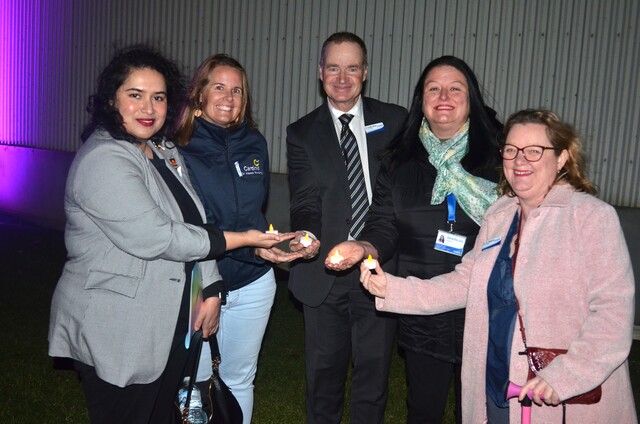A measles warning is in place for Dandenong and the South-East.
Deputy Chief Health Officer Dr Brett Sutton said a measles infection might have been acquired at Centrelink in Dandenong between Monday 22 January and Friday 2 February.
“The man in his forties visited a number of places in Melbourne’s South-East while infectious,” he said.
“People who develop illness over the next week should alert their doctor or hospital emergency department.”
Dr Sutton said the illness usually started with common cold symptoms such as a runny nose, red eyes and a cough, followed by fever and rash.
“The characteristic measles rash usually begins three to seven days after the first symptoms, generally starting on the face and then spreading to the rest of the body,” he said.
“Anyone developing symptoms is advised to ring ahead to their general practitioner or hospital first and tell them that they may have measles so that appropriate steps can be taken to avoid contact with other patients.”
Measles has an incubation period of up to 18 days so people who visited the following locations might show symptoms up until Tuesday 6 March:
Thursday 8 February – Centrelink Dandenong, 8am to 5pm;
Friday 9 February – Centrelink Dandenong, 8am to 5pm; Mountain Gate Cricket Club, Ferntree Gully, 6pm to 8pm; Dan Murphy’s Rowville, 8.30pm;
Saturday 10 February – Fairhills High School basketball stadium, Knoxfield, 9.30am to 10.30am; Rowville Secondary College basketball stadium, Rowville, 2.30pm to 3.30pm;
Sunday 11 February – Belgrave Cricket Ground, 11.30am to 6.30pm; and
Monday 12 February – ABC Costume Hire, Wantirna South, 3pm to 4pm.
Dr Sutton said measles was a highly infectious viral disease that could cause serious illness, particularly in very young children and adults.
People can develop pneumonia and other serious complications from the disease, and often need to be hospitalised.
The disease is now uncommon in Australia because of the widespread use of the measles vaccine.
Dr Sutton said most measles cases in Victoria were linked to international travel.
Anyone who is unvaccinated is at risk of contracting measles.
Most cases occur in adults aged between 26 and 52 as they have lower immunisation coverage than younger adults and children.
Most people over the age of 52 will have been exposed to measles in childhood, and therefore will be protected.
Measles warning for Dandenong

Digital Editions
-

Lighting up hope for all
Survivor advocates have come too far to stop. Across the globe, the 16 Days of Activism shine a light on gender-based violence, with Macy Choudhury…





